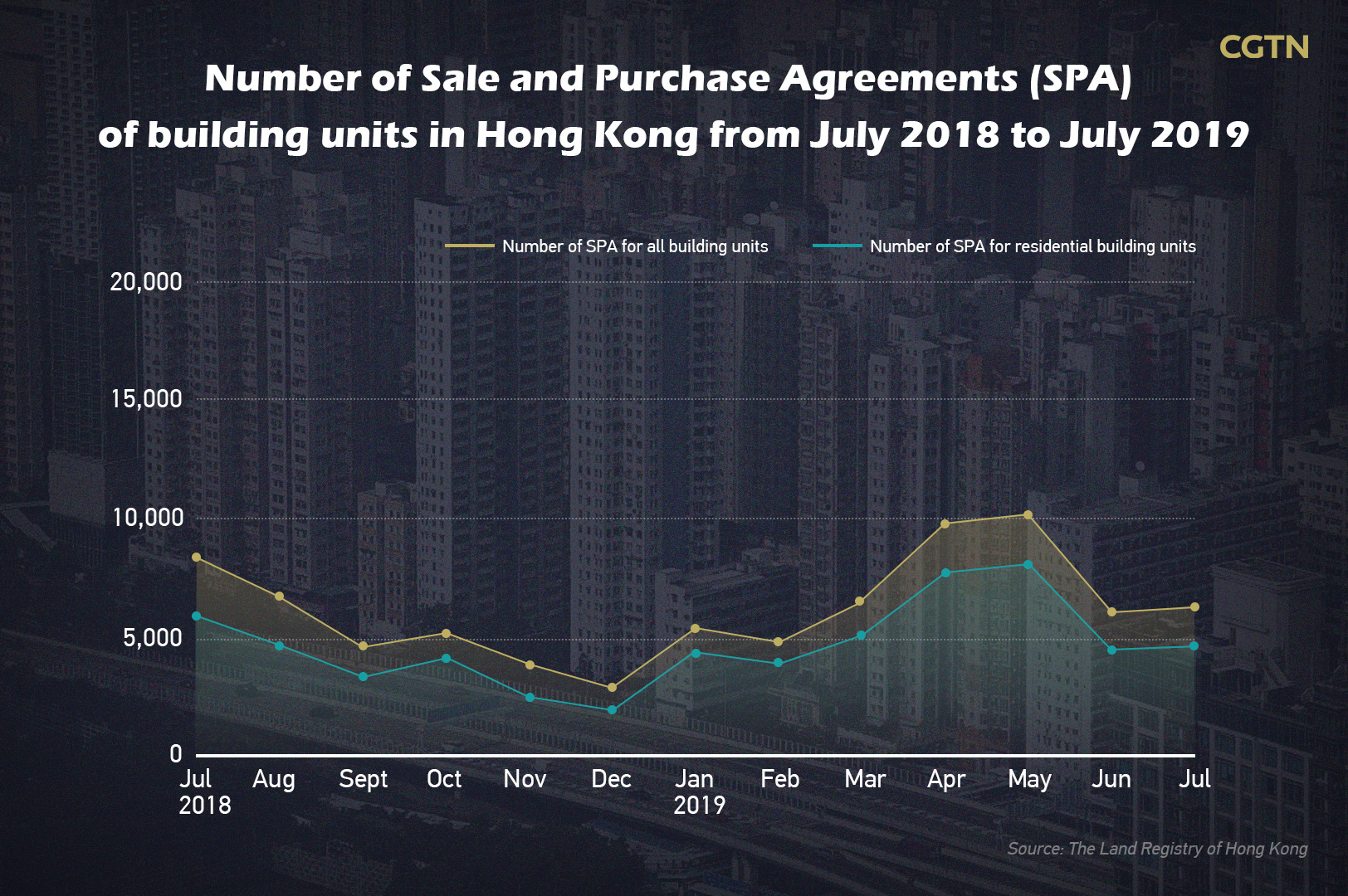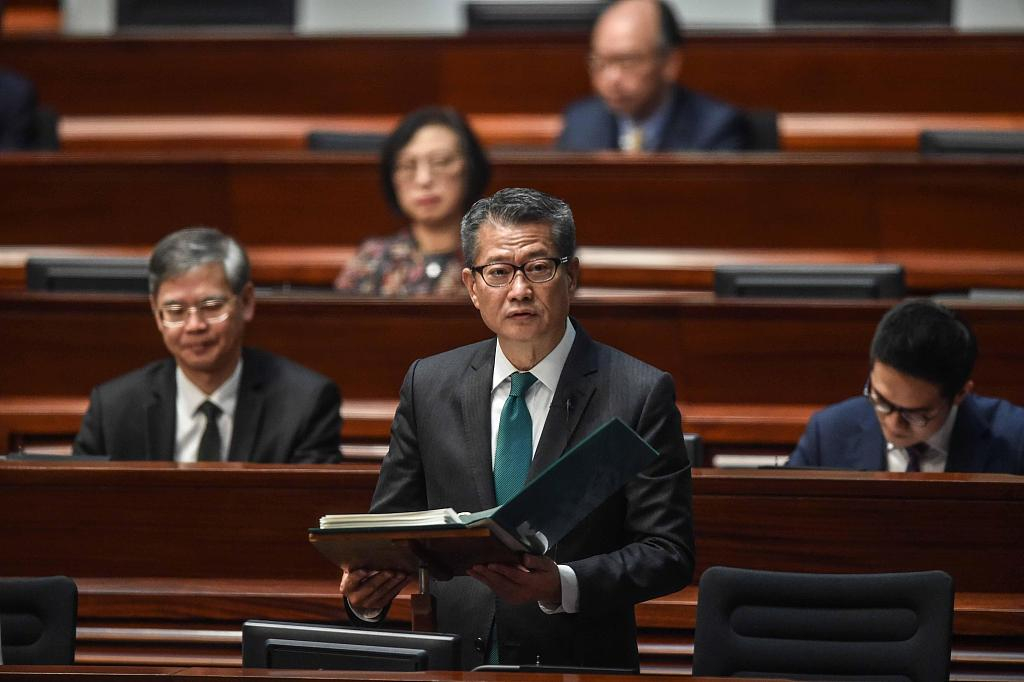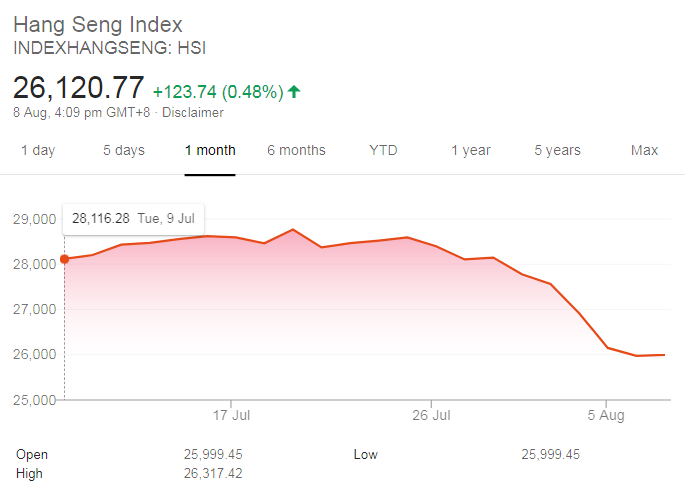
After the downturn of 2018, the Hong Kong property market seemed to be turning around in 2019. But the figure has fallen again since June coinciding with large-scale protests that has caused chaos.

According to Hong Kong's Land Registry, monthly residential building unit sales fell in June by more than 43 percent to 4,627, down to a four-month low, while first-hand residential sales slipped to 1,111 units.
In the following month, the market continued to struggle. There were only 6,380 sale and purchase agreements (SPA) for all types of buildings, a year-on-year decrease of 24.6 percent, and SPA figure for residential buildings was 4,805, down 21.1 percent year-on year.
The total value of the SPA for all types of buildings was 54 billion HK dollars (6.89 billion U.S. dollars) in July, a decrease of 45.7 percent year-on-year. Among that, the total value of the SPA for residential buildings was 44.1 billion HK dollars (5.62 billion U.S. dollars), down 32.4 percent year on year.
Key events of Hong Kong rallies

It's not just the real estate market, whole economy in Hong Kong is chilling
"Since June 9, the violence has escalated and taken a heavy toll on the society. Hong Kong is facing the most serious situation since its return to the motherland," said Zhang Xiaoming, director of the State Council's Hong Kong and Macao Affairs Office.
According to IHS Markit, Hong Kong's July whole economy purchasing managers' index plunged from 47.9 the previous month to 43.8, the lowest since March 2009, as both output and new orders fell.
Hong Kong's GDP growth of the second quarter this year is 0.6 percent. However, it is less than expected and a seasonal adjustment has made the figure look better than it actually is.
"It seems similar to the figure of first quarter," said Paul Chan, Hong Kong Special Administrative Region's Financial Secretary, "But think about it, if we consider seasonal adjustment, the real growth is actually minus 0.3 percent."
Chan added that Hong Kong's economic growth had lost momentum. "If that negative trend continues, the third quarter will face a down turn."

Financial Secretary of the Hong Kong Special Administrative Region, Paul Chan, announcing the new annual budget in the Hong Kong Legislative Council, February 27, 2019. /VCG Photo
Shares stumbling
According to IHS Markit, Hong Kong's July whole economy purchasing managers' index plunged from 47.9 the previous month to 43.8, which was the lowest since March 2009, as both output and new orders fell.
The Hang Seng Index, main indicator of the overall market performance in Hong Kong, has also dropped more than 2,000 points since the beginning of July.


Copyright © 2018 CGTN. Beijing ICP prepared NO.16065310-3
Copyright © 2018 CGTN. Beijing ICP prepared NO.16065310-3